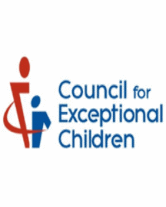Resourcing Being a Disseminator
Excerpted from Resourcing: Handbook for Special Education Resource Teachers.
One of the most rewarding roles you can choose is that of disseminator. Teachers are typically collectors of ideas, articles, and materials anything that will help them in their teaching. They are especially appreciative of any new ideas that might work in their classroom for the group as a whole or for individual students. You are in a perfect position to assist them. Special education teachers tend to be even bigger "packrats" than regular education teachers! You often have a wealth of information in the form of both written materials and ideas. Share them!
Sharing Ideas
One good way to disseminate information is simply to share ideas. The information you disseminate does not necessarily have to be written. At times, brief verbal suggestions are effective. One method of sharing your ideas is to ask your principal for a five-minute spot on faculty meeting days. At each meeting you could describe one effective method for assisting mainstreamed students. For example, you might show teachers how to effectively use advance organizers in presenting information. Other ideas might relate to an effective behavior management tool, test-taking strategies, developing tests or study sheets, and so forth.
Although you might choose to do a longer workshop, teachers are sometimes more responsive and attentive to shorter sessions. Teachers are tired at the end of the school day, and a session longer than five or ten minutes may be too much. As a disseminator of ideas, you want to make sure your audience is responsive!
The cafeteria or lounge may be an ideal setting for communicating ideas to teachers. Many teachers' conversations relate to problem students in their classrooms. Once they have had time to vent if this seems appropriate you can collaborate with them on possible ideas for meeting students' needs. By doing this, you can assist teachers in constructive problem solving, as opposed to fostering their "I'm frustrated with this student" talk.
An effective workshop might be to meet with grade-level teachers during their planning period and have them discuss one or two of their most problematic students. You and the teachers could brainstorm possible strategies to work with the student. Again, your job would be to make this a joint problem-solving item and not just a session for venting frustration.
There are, of course, many other methods of sharing ideas and places to do so. Take advantage of situations as they arise! A word of caution, however: Do not become so available that people are constantly requesting information from you. If you are busy, set up a specific time and place to discuss their needs one that is mutually convenient.






